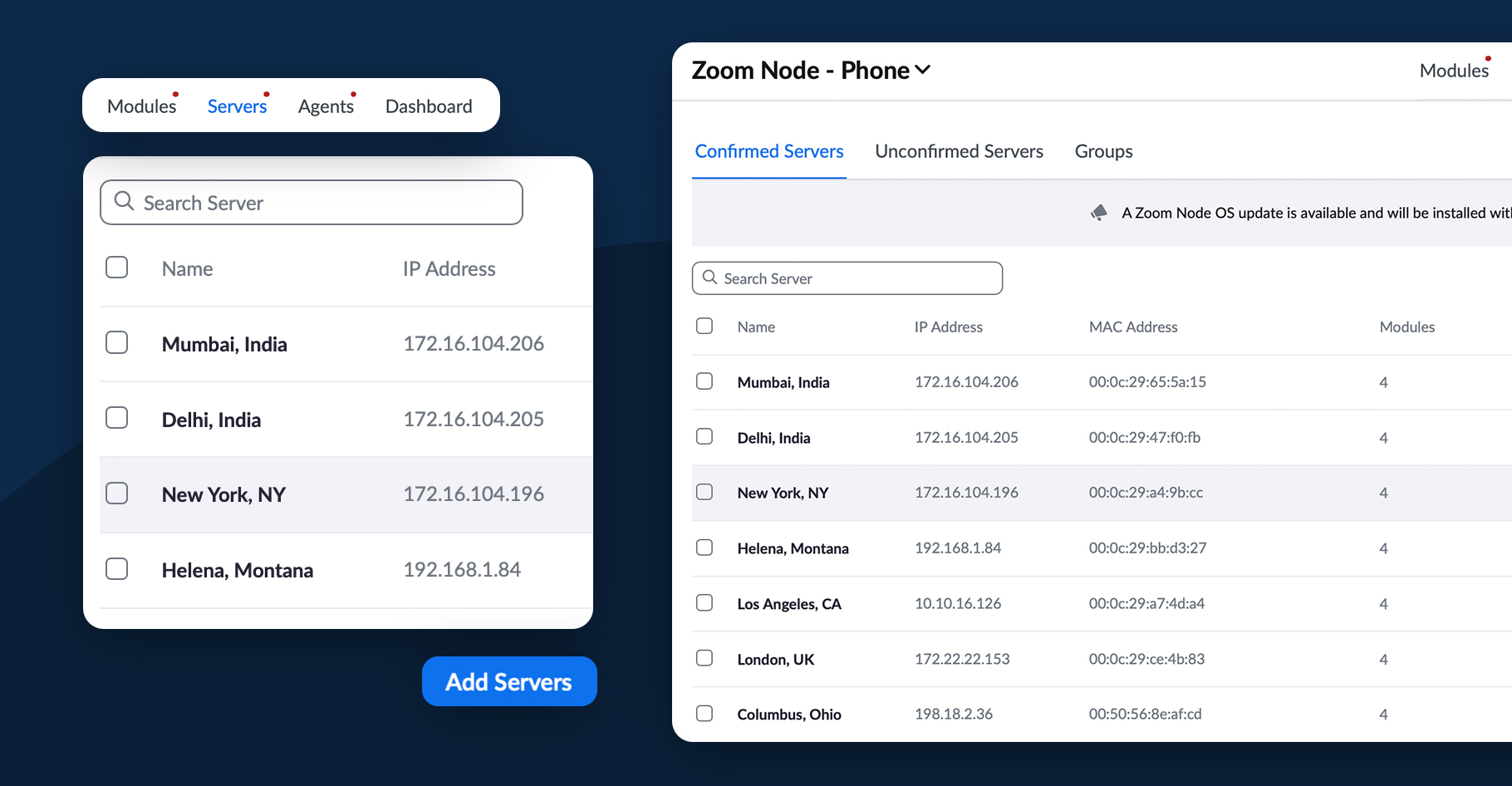![The 12 best Google Docs alternatives [2026] person-using-computer](https://media.zoom.com/images/assets/slack-alternatives-hero.webp/Zz0xY2JhMTk2YWQ1ZjYxMWYwYjlmMmYyNzgwY2YzOGE0YQ==)
The 12 best Google Docs alternatives [2026]
Discover the best Google Docs alternatives in 2026. Compare features, pricing, and benefits to find the perfect solution for your team.
A hybrid cloud solution like Zoom Node can help meet the unique business needs of enterprises in the areas of security, bandwidth, or compliance that demand an on-premises solution — but need the flexibility of the cloud.
Updated on February 28, 2024
Published on February 28, 2024


Hybrid work can pose a different kind of challenge when it comes to internet connectivity and bandwidth optimization. As the world of work evolves, you may need to implement hybrid networks within your infrastructure to address the scale of your workforce. That can be compounded when you’re tasked with prioritizing network resiliency in the event an outage or threat impacts your organization.
Or, maybe you’re taking a gradual approach to cloud migration. A hybrid cloud solution can help you gain the benefits of cloud-based management while giving you the flexibility to keep certain services on premises.
Zoom Node can help you meet your unique deployment requirements, whether you’re looking to solve for loss of internet connectivity, in-country compliance, or bandwidth optimization. Read on to see how this hybrid cloud approach can support greater flexibility and security with Zoom solutions — and learn about the latest functionalities we’ve added for storing meeting recordings and chats locally.
If you use Zoom Meetings, Zoom Phone, and Zoom Team Chat, but require data to be stored on premises or kept within your network, Zoom Node is designed to virtually connect the Zoom cloud to customer data centers. Zoom Node is a central hub for hosting Zoom workloads — what we call modules — that provide functionalities like meetings or calling.

Unlike a traditional on-premises solution, Zoom Node pairs the simplicity of cloud web-based management with the reliability and scale of technology that spans both cloud and on-premises, giving you the flexibility to adopt and migrate services at your own pace. It is designed to integrate with your existing network, server and storage investments, and security and compliance technologies.
Zoom Node enables you to keep your real-time voice and video on premises and close to your end users. It also provides functionalities, such as cloud phone survivability, in the event of a network failure. You get the scalability and cost-effectiveness of the cloud while enhancing local network performance, helping to safeguard your organization’s essential communications.
With Zoom Node, you can:
Modules are service-specific software that run on Zoom Node, providing hybrid services. Each Zoom Node is capable of supporting up to four service modules.
Zoom Meetings Hybrid allows you to keep meeting media within your network, which enhances internet and WAN bandwidth and reduces meetings, webinars, and events latency. It also helps improve network security by consolidating media traversing the network edge.
Zoom Recording Hybrid is an extension of our Zoom Meetings Hybrid module, which enables you to store your Zoom Meetings and Zoom Webinars recordings locally. This is an additional tool to help address your security, compliance, and survivability needs.
Zoom Phone Local Survivability (ZPLS) is designed for businesses that need to maintain certain levels of telephony service and business continuity in the event the IP connectivity is lost to the cloud. Zoom Phone, a cloud-based service, is normally dependent on reliable IP connectivity to Zoom’s data centers, but ZPLS offers a survivability solution of basic telephony services as an additional layer of protection in the event of an unforeseen loss of connectivity.
Zoom Team Chat Hybrid helps support compliance and security with on-premises storage for your chat messages and data. With customized retention periods, you can determine how long you want to retain chat data.
By extending Zoom cloud workloads to enterprise infrastructure through Zoom Node, you can now standardize deployment and build a resilient infrastructure that supports uninterrupted collaboration. Employees can do their best work from anywhere while your business expands and evolves without constraint.
To learn more about Zoom Node, visit our webpage here.
Editor’s note: This blog was originally published in September 2022 and was updated in February 2024 with the most current information regarding Zoom Node features.